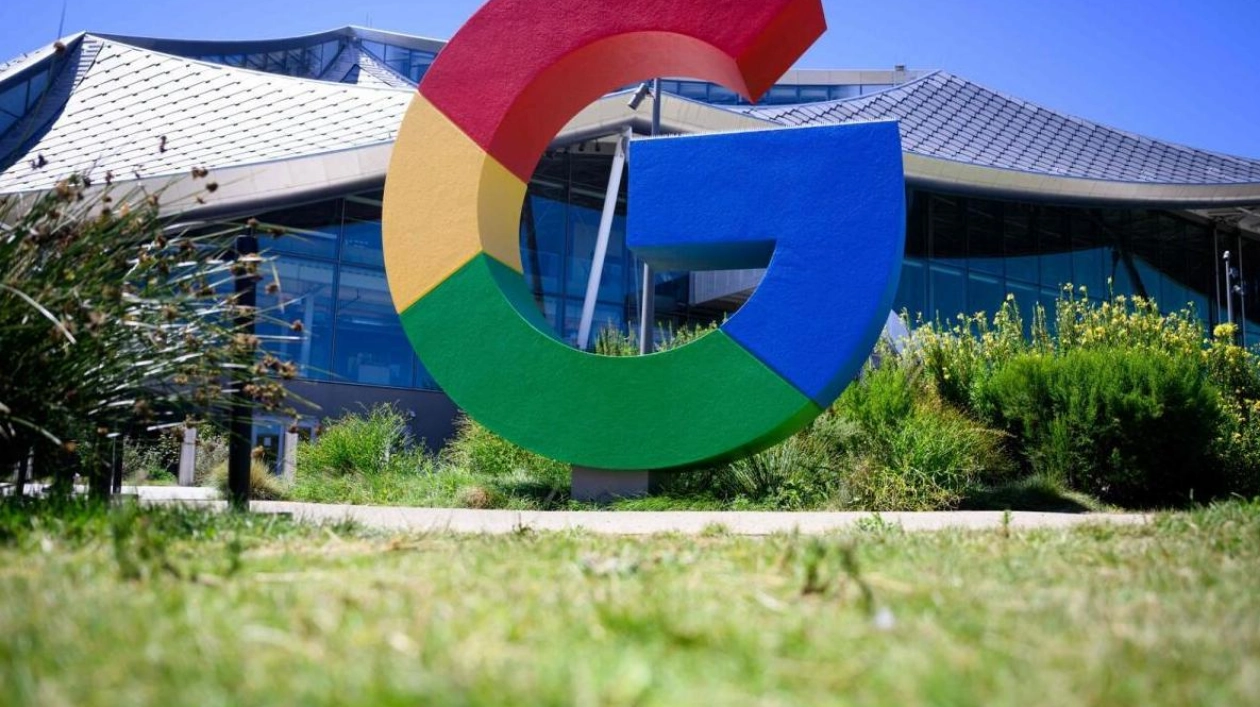A Google logo is visible at Google’s Bay View campus in Mountain View, California. — AFP
Late Wednesday, the US government requested a judge to mandate the dismantling of Google by selling its widely used Chrome browser, marking a significant antitrust action against the internet giant. In a court filing, the US Department of Justice advocated for a restructuring of Google's business, including prohibiting deals that make Google the default search engine on smartphones and preventing it from leveraging its Android mobile operating system. Antitrust officials stated in the filing that Google should also divest Android if proposed remedies fail to prevent the tech company from exploiting its control of the mobile operating system.
Justice officials 'chose to push a radical interventionist agenda,' according to Google president of global affairs Kent Walker, who responded to the filing. Calling for the breakup of Google represents a significant shift by the US government's regulators, who have largely refrained from targeting tech giants since their unsuccessful attempt to break up Microsoft two decades ago. Google is anticipated to present its recommendations in a filing next month, and opposing sides will argue their positions at a hearing in April before US District Court Judge Amit Mehta.
Regardless of Judge Mehta's decision, Google is expected to appeal the ruling, potentially extending the process for years and possibly culminating in a final decision by the US Supreme Court. The case could also be influenced by the arrival of President-elect Donald Trump to the White House in January. His administration may replace the current DOJ antitrust division team, who could either continue the case, seek a settlement with Google, or abandon the case entirely. Trump has been inconsistent in his approach to handling Google and the dominance of big tech companies, accusing the search engine of bias against conservative content while also signaling that a forced breakup would be too extreme.
Determining how to address Google's alleged wrongs is the next phase of the landmark antitrust trial, which saw the company ruled a monopoly by Judge Mehta in August. The proposal 'would break a range of Google products' and stifle the company's investment in artificial intelligence, according to Walker. 'DOJ's approach would result in unprecedented government overreach that would harm American consumers, developers, and small businesses — and jeopardize America's global economic and technological leadership,' Walker said.
Adam Kovacevich, CEO of industry trade group Chamber of Progress, described the government's demands as 'fantastical' and contrary to legal standards, advocating for narrowly tailored remedies instead. The trial, concluded last year, examined Google's confidential agreements with smartphone manufacturers, including Apple. These deals involve substantial payments to secure Google's search engine as the default option on browsers, iPhones, and other devices. The judge determined that this arrangement granted Google unparalleled access to user data, enabling it to develop its search engine into a globally dominant platform.
From this position, Google expanded its tech and data-gathering empire to include the Chrome browser, Maps, and the Android smartphone operating system. The US government currently has five pending cases against big tech over antitrust concerns, following the Biden administration's tough stance on curbing the dominance of these companies. If pursued by the Trump administration, the cases against Amazon, Meta, and Apple, as well as two against Google, could take years to litigate.
Source link: https://www.khaleejtimes.com






